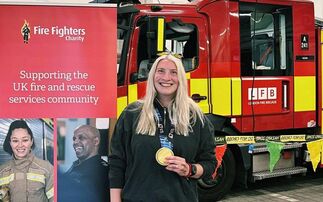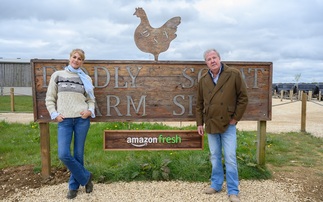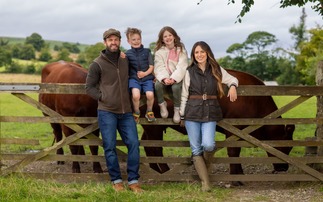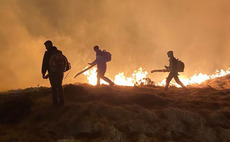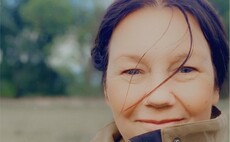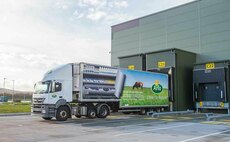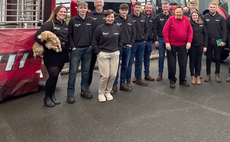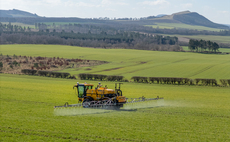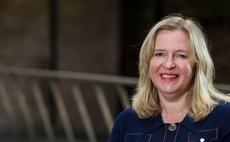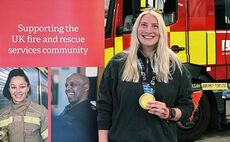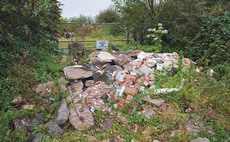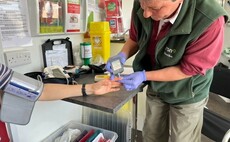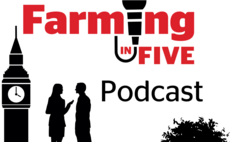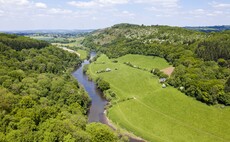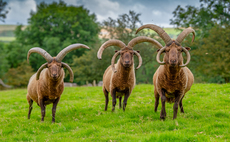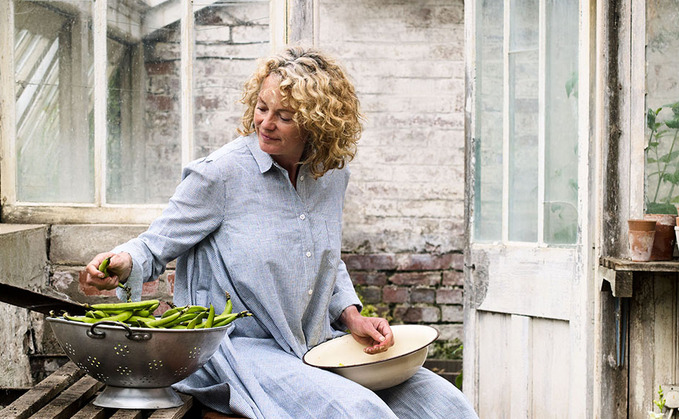
This weeks Backbone of Britain is a celebration of spring in the countryside. Emily Ashworth catches up with television presenter, Kate Humble about her love of rural life.
When you relay the various programmes Kate Humble has presented, you are swiftly reminded of the vast catalogue of shows which have, no doubt, become many viewers favourites. Lambing Live, Countryfile, Back to the Land, Escape to the Farm you could even say, for the lack of a better phrase, that she is part of the furniture; her love for rural Britain is a theme which runs clearly through most of her work.
Her heart, she admits, has always been in the British countryside, although life has steered her through many new experiences and to new places, including a stint in Africa. But it was her happy childhood spent in Berkshire that laid the foundation for her interests in rural affairs.
I like to think of myself as having a vicarious farming background, because we lived next door to a farm which was almost as good as living on a farm, she says.
I loved being outdoors and probably drove [next door] mad because I spent all my time in the farmyard. I would go before and after school and muck the horses out, but never imagined that farming would be an intrinsic part of my life. [But] I knew the countryside would be.
At 19, Kate left home and travelled to Africa, taking on various jobs including work on a crocodile farm and truck driving. When she returned, she secured a job as a television runner, making cups of tea, but soon found herself in front of the screen.
Time away from home, she says, gave her a renewed appreciation for the British countryside, and her next role as a researcher for the BBCs popular show, Animal Hospital, a look into the inner workings of veterinary clinics, saw her move into presenting.
She says: The year I joined the production team they decided to base it at a more rural clinic.
Career
I think I was the only person they interviewed whod previously had contact with anything bigger than a hamster and owned her own pair of wellies. I absolutely loved it it was all about the animals and the people working with them.
Her television career has gone from strength to strength, admitting herself that she has been lucky to explore the countrys rural landscape and meet those at the heart of it has been a privilege.
But Kate could not ignore the call of the countryside, and after years in London where Mother Nature is all over the place, Kate and her husband, Ludo, decided to make the move to Wales, settling at a smallholding in the Wye Valley.
She says: Something started to change, and I started to resent the noise and the traffic.
I missed being in my environment its the only way I can put it. I look out of the window now, and its blowing a gale and its grey. And yet the first shoots are coming up through the ground and theres more bird activity I havent heard a skylark yet, but it wont be long. I missed knowing what mother nature was doing.
Ludo was offered a job in Cardiff, and the idea of being here was so compelling that in the end we sold everything and moved here properly. We bought a beautiful old, stone farmhouse with four acres of what turned out to be steep, difficult land.
The couple keep a variety of animals, but it deepened her interest in farming with nature.
Weve become so totally disconnected from land; from the way that everything works and the way the natural world works. Farmers are so misunderstood and have become people who are not understood theyre put in a box and people have preconceived ideas, she says.
It started with some hens and collecting eggs in the morning. To be able to eat something and know where its come from and that youre responsible for the welfare of that animal feels incredible.
Quote
"There needs to be a partnership you need to work with nature and thats something farming is coming back to"
Encouraged
There needs to be a partnership you need to work with nature and thats something farming is coming back to and being encouraged to by Government policy for the first time since the war.
What has to happen is that everyone, irrespective of where they live and who they are, needs to really appreciate and understand what it takes to produce food for the nation.
In the pandemic people were willing to spend more on food because they werent spending as much on leisure.
You had time to cook; time to think about where your food came from and valued small, local shops or farm shops.
In 2010, Kates new venture began again, quite unexpectedly after hearing a 47-hectare (117-acre) council farm close by was about to be sold. It is clear that when Kate feels strongly about something, she pours her soul into making it happen, and after battling with the local council, she managed to persuade them that the farm was worth saving.
And alongside, a rural skills centre could be built to attract visitors to the area.
She says: It felt entirely wrong that a small farm which had supported two families over the years was going to be turned into pony paddocks or housing land.
Kate is very open and honest about her and Ludos ability to farm on a bigger scale, admitting we dont know how to manage 117 acres.
But their skill sets lie in public engagement, and she turned to her friends (or wonderful mentors as she calls them), Jim and Kate Bevan, who did the first ever series of Lambing Live alongside Kate.
They were the ones who connected me to farming in a way that Ive never been connected before, and I rang and asked if they knew anyone who needed a farm they said yes, we know exactly the right people, says Kate.
Tim and Sarah Stevens now inhabit the farm, running 240 ewes and 12 cows. They run the farm as their own business, but naturally it works in partnership with Kate and Ludos rural skills centre, Humble by Nature especially at lambing time, when you can roll up your sleeves on a lambing course and learn essential skills from Tim.
Tim asked, why is anybody interested in what I do? He had no idea that actually everyone is interested, says Kate.
What he has realised is what he does is valued. People were able to make a living from small farms, but why is that different now? We understand much better now that having great swathes of monocrop isnt good for anybody or anything.
Through collaboration, support and enterprise, we will make our rural economy viable again, and make it a place for people and wildlife.












